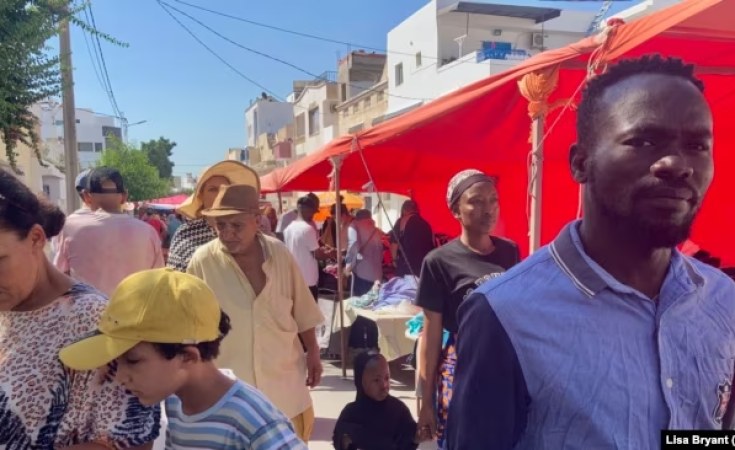Paris — Sub-Saharan African migrants are leaving Tunisia amid an increase in racist attacks, following controversial comments by the country's president, Kais Saied.
Saied and his government deny his remarks were racist. At issue are his comments last week, when he called for urgent measures against what he called "hordes" of sub-Saharan migrants. He urged Tunisian security forces to halt illegal immigration and has described the migrant influx as a conspiracy to change the North African country's democratic makeup.
Saied's remarks have sparked an uproar and criticism from the African Union. Hundreds protested in Tunis on February 25.
Speaking to Agence France-Presse Monday, Tunisian Foreign Minister Nabil Amar said authorities were trying to reassure sub-Saharan Africans. There was no question of apologizing, he said, as the government hadn't attacked anyone.
But Africans living in Tunisia say they are facing a surge of racist acts.
Christian Kwongang from Cameroon, heads AESAT, an African student association in Tunisia. He said fellow students and other African migrants have been targeted in arbitrary arrests, physical attacks and slurs, including on social media. Many want to leave the country.
Sub-Saharan African workers are reportedly losing their jobs and getting kicked out of rented homes. Black Tunisians, who make up about 10% of the country's population, are also targeted in racist attacks.
"What we are seeing right now is really an increase of violence against sub-Saharan violence or students, and, really, a climate of fear," said Salsabil Chellali, Tunisia's office director for Human Rights watch. "People are scared to go out from their houses, scared to go to work."
Chellali said while racism is not new in Tunisia, the president's statements have inflamed things.
This is just the latest controversy surrounding Saied, who grabbed far-reaching powers in 2021, dissolving the country's democratically elected parliament. A new parliament is set to take office later this month with vastly reduced powers in a country that was once an Arab Spring champion. Only 11% of eligible voters cast their ballots in legislative elections.
Tunisian authorities have also detained or sidelined a raft of critics, including journalists, opposition politicians and civil society activists.
Human Rights Watch has also called on Saied to halt what it describes as a crackdown against judicial independence and reinstate dozens of magistrates and prosecutors who were dismissed or fired in recent months for various reasons, including alleged corruption.
"I think this also shows the willingness of the president today to toughen the tone against his opponents and also his desire to rule alone," Chellali said.
Both Washington and the European Union have expressed concern about recent developments. Saied has previously rejected what he calls foreign interference.


